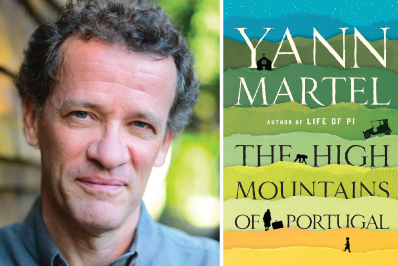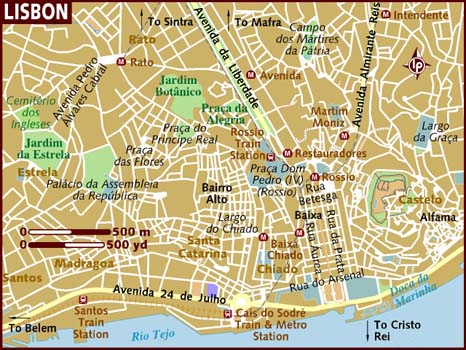Having been reading about Portugal, I tried this title.

It opens with a nice walk through 1903 Lisbon. I followed some of it on Google maps.

However this book is SO contrived. Our protagonist walks through the city backward, yes like a defensive safety or like Ginger Rodgers! He is sad and in mourning and expresses it in this way and has been doing this for a year or more. Oh hum. Thus making others responsible for not colliding with him. How egotistical. Out of my way! Coming through, backward! Yes I know walking backward can be a form of contrition but there is none of the spiritual depth of that implied in these pages, where it reads like what it is, a gimmick.
The backward walker reaches his rich uncle’s house and uncle is a lively character who wants to move with the times, in particular with the automobile. Many pages are consumed as the uncle tries to explain to the protagonist how to drive. He makes no effort to learn but some how does manage to do it. Backward, indeed.
He then drives off to the high mountains on a quest. To find an altar piece carved in Angola and which is in a little out-of-the-way church there. He read about the altar piece in a priest’s diary from the 16th century, which no one else has read, it having been buried in an uncatalogued box in the national archives, and then traced it through shipping, archival, and ecclesiastical records. That part was interesting but sped through.
Nothing compelling here. He manages to drive the car through villages to the amazement of locals and the boredom of this reader. It is a short book so I will flip more, but…
I did keep flipping. It is three stories connected only by the author’s assertion that they connect. After the motorist who does find the altar piece, which portrays Jesus on the cross as an ape. Better if it were an African slave after the harrowing descriptions of that.
Then a doctor and his wife in 1938 without any reference to the Salazar regime or the wider world that I noted in my FF, Fast Flipping.
Then in the 1980s a Canadian senator who retires there. Odd that. The author does seem to know anything about the Canadian Senate which is largely ceremonial. While the senator’s ancestors were Portuguese he hasn’t the language but moves there anyway in retirement with his recently acquired pet ape. Yep! The first scene of recognition with Odo, the ape, is very good, but then it is repeated with dogs, with birds, Odo can relate to anything.
Once again it seems to me that all this creativity is to impress other writers, awards panel members, and jaded reviewers and not to entertain, educate, or stimulate readers. Moreover, most of it seems to have been researched in manuals and reads like it, the car, the mountains, the apes; it reads like digests from Wikipedia interspersed with some dialogue and a few quite good scenes.
Even more depressing than reading the book is reading the high praise heaped on it by professional reviewers.
Skip to content
